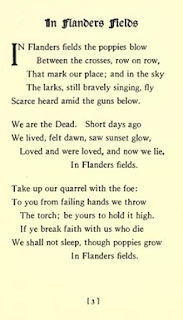 Atrito diplomático entre Pequim e Londres por papoula de papel
Atrito diplomático entre Pequim e Londres por papoula de papel
Qua, 10 Nov, 10h01
 |
| O primeiro-ministro britânico David Cameron, que visita a China, se recusou nesta quarta-feira a atender... |
Ao contrário da Grã-Bretanha, onde a papoula que tradicionalmente homenageia os mortos pela pátria, as autoridades chinesas consideram a flor um símbolo da humilhação, afirmou uma fonte britânica que pediu anonimato.
"Os chineses nos disseram que seria indecente usar uma papoula por causa das guerras do ópio", completou a fonte, a respeito das batalhas em que a Grã-Bretanha derrotou a China.
"Informamos que a papoula significa muito para nós e que a usaríamos de todos os modos", acrescentou.
Nos países da Commonwealth (Comunidade Britânica) é uma tradição usar na lapela uma papoula de papel em recordação aos soldados mortos e feridos nas guerras. A flor é usada do fim de outubro até 11 de novembro, data do armistício que acabou com a Primeira Guerra Mundial.
As chamadas guerras do ópio envolveram a China do tempo da dinastia Qing, que desejava proibir o comércio do ópio em seu território, a Grã-Bretanha, na primeira delas, e outros países, na segunda.
Cameron se reuniu com o presidente chinês Hu Jintao nesta quarta-feira, último dia de sua visita oficial a China.
DISCOVER THE MEANING OF POPPIES IN EUROPE
The poppies referred to in the poem grew in profusion in Flanders in the disturbed earth of the battlefields and cemeteries where war casualties were buried[2] and thus became a symbol of Remembrance Day. The poem is often part of Remembrance Day solemnities in Allied countries which contributed troops to World War I, particularly in countries of the British Empire that did so.
The poem "In Flanders Fields" was written after John McCrae witnessed the death, and presided over the funeral, of a friend, Lt. Alexis Helmer. By most accounts it was written in his notebook[3] and later rejected by McCrae. Ripped out of his notebook, it was rescued by a fellow officer, Francis Alexander Scrimger, and later published in Punch magazine. However, this story is rejected by the editor at the time:
"A legend has already grown up around the publication of "In Flanders Fields" in Punch. The truth is, 'that the poem was offered in the usual way and accepted; that is all.' The usual way of offering a piece to an editor is to put it in an envelope with a postage stamp outside to carry it there, and a stamp inside to carry it back. Nothing else helps.


Nenhum comentário:
Postar um comentário